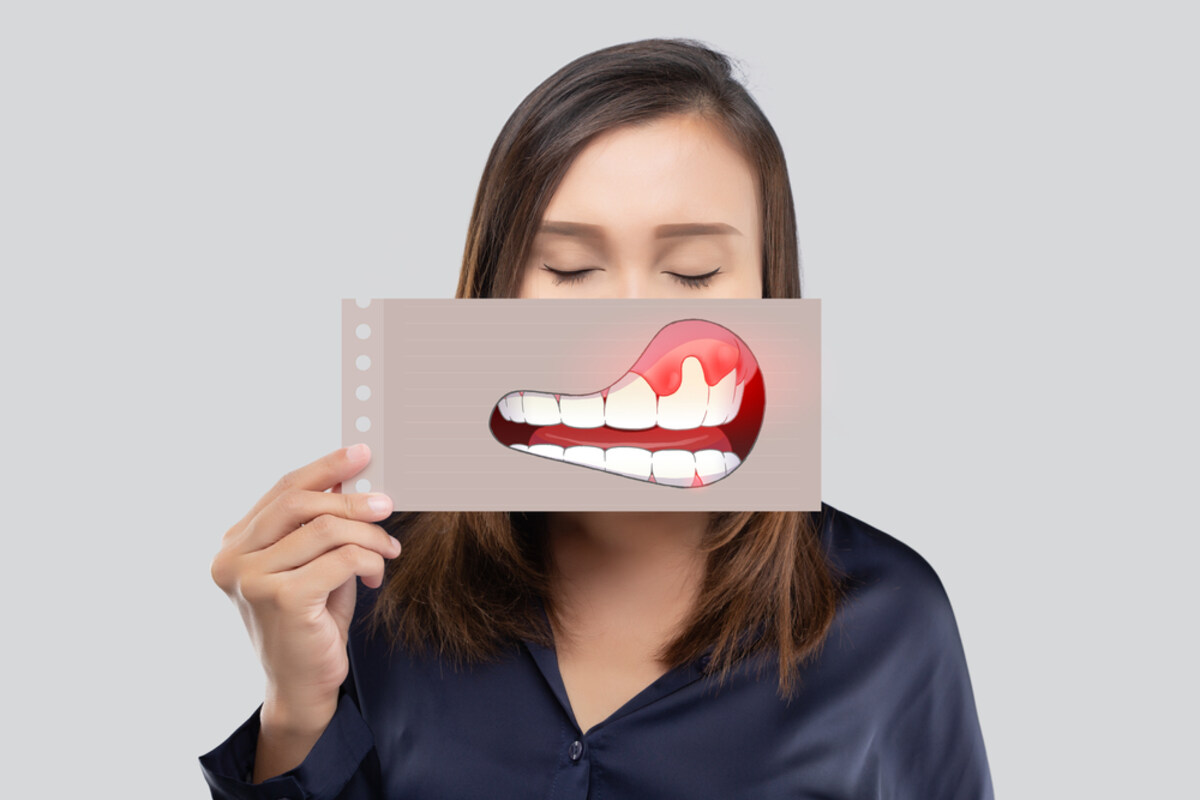Most individuals see a little blood when they brush or floss and just ignore it. Gum bleeding, however, is not something to be ignored. Although occasional bleeding may appear insignificant, at times it can be an indicator of something more serious. In this blog, we will discuss what causes it, when it becomes an issue, and how you can prevent or control it with good care.
What Causes Bleeding Gums?
There are several bleeding gums causes, and knowing them can help you take appropriate action. Some of the most popular reasons are:
- Poor oral hygiene – When there is plaque buildup on gums and teeth, it leads to irritation and bleeding.
- Gingivitis – The first sign of gum disease, where gums become inflamed and are likely to bleed.
- Brushing too hard – Brushing with a hard-bristled toothbrush or with too much force can be painful for your gums.
- Flossing too infrequently or improperly – If you’re just starting to floss, your gums will bleed when you first start because they are sensitive.
- Vitamin deficiencies – Vitamin deficiencies of C and K can cause gum issues.
- Medical conditions – Some medical conditions such as diabetes, blood disorders, or certain drugs can impact the health of gums.
Knowing these causes can assist you in identifying when bleeding gums are a minor problem—or a larger health issue.
When Is Gum Bleeding Normal?
Mild gum bleeding can occur if you’ve recently resumed flossing after an extended period or if you’ve brushed too vigorously by accident. In such instances, bleeding should cease within a few days once your gums acclimate.
But if the bleeding persists, occurs regularly, or is associated with other signs, it may be time to take action.
Look Out for These Symptoms:
- Daily bleeding while brushing or flossing
- Red, swollen, or painful gums
- Constant bad breath
- Receding gums or loose teeth
- Chewing pain
If you experience these symptoms, it’s critical to get gum bleeding treatment promptly.
Is It a Sign of Gum Disease?
In most instances, bleeding gums are a warning sign of periodontal disease or gum disease. The first stage, gingivitis, can be reversed with good care. But if not treated, it can advance to periodontitis, a more advanced type of gum disease that can destroy the supporting structures of your teeth.
That is why bleeding gums need to be addressed by visiting a dentist in Rutland if it occurs regularly. If addressed early, tooth loss and other complications can be avoided.
What Is Periodontal Treatment?
If gum disease is responsible for the bleeding, your dentist can suggest periodontal treatment in Rutland to promote the healing of gums. The treatment may involve:
- Professional dental cleaning – It removes plaque and tartar from the gum line above and below.
- Scaling and root planing – Deep cleaning method for treating infected gum pockets.
- Antibiotics – To assist in combating infection of the gums.
- Surgical measures – In extreme cases, flap surgery or bone grafting would be required.
Early detection enhances the effectiveness of treatment and eliminates the necessity of more extensive treatment in the future.
How to Prevent Bleeding Gums
Preventing bleeding gums begins with easy everyday practices. Here’s what you can do:
Have Good Oral Hygiene
- Brush teeth twice daily with a soft-bristled toothbrush.
- Change your toothbrush every three months or earlier if the bristles are frayed.
- Floss once a day to eliminate food particles and plaque between teeth.
- Rinse with an antibacterial mouthwash to minimize inflammation.
Watch Your Diet
- Consume foods high in vitamin C (such as oranges, strawberries, and broccoli) to promote gum health.
- Add leafy greens for vitamin K, which aids in blood clotting.
- Avoid excessive sugary snacks and drinks that contribute to plaque buildup.
Regular Dental Checkups
Visiting a dentist in Rutland for regular cleanings and exams helps catch early signs of gum issues before they worsen. Most people benefit from a checkup every six months, but your dentist may recommend more frequent visits if you’re at higher risk.
Is Bleeding Always Due to Poor Oral Care?
No, not necessarily. Although poor oral hygiene is a leading cause, individuals can have good brushing habits and still bleed. Other reasons to consider are:
- Hormonal fluctuations – Pregnancy, menstruation, or menopause can cause gums to become more sensitive.
- Medical treatments – Chemotherapy or radiation can impact the gums.
- Blood thinning medications – These can make bleeding more likely.
If you belong to any of these groups and are experiencing gum bleeding, it is still necessary to obtain bleeding gums treatment near you.
When to Visit a Dentist Right Away
Even if minor bleeding gums do not feel like an emergency, visit a dentist immediately if you notice:
- Heavy or unexpected bleeding
- Bleeding that continues after brushing
- Swelling or pus near the gums
- Loose or moving teeth
- A new foul taste in the mouth
Overlooking symptoms could result in more intricate dental issues in the future. Gum bleeding treatment and early diagnosis can save you time, money, and pain.
Take Control of Your Gum Health Today
Bleeding gums are not something to brush aside. Whether it is due to improper brushing, underlying medical conditions, or incipient gum disease, the sooner you act, the better. A dental expert can diagnose the cause and direct you to the most effective bleeding gums treatment in your area.
At Acorn Dental & Implant Center, we know how much of a difference an early diagnosis and treatment of gum issues can make. Our compassionate team provides high-quality care and innovative periodontal treatment in Rutland to return your gums to health. If you need a reliable dentist in Rutland, we’re here to ensure you feel at ease and confident with your dental health. Book your appointment today and take the first step toward healthier gums and a brighter smile.







